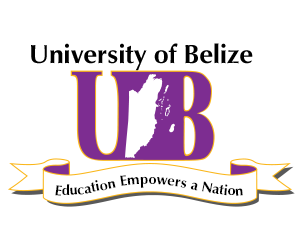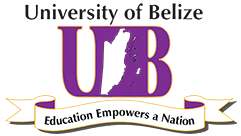- Version
- Download 393
- File Size 484.36 KB
- File Count 1
- Create Date April 9, 2018
- Last Updated May 7, 2018
UB Imprint Vol 24: UB Lecturer & Prairie View A&M University Researchers: Winners of the International Award for Excellence in Diversity Research
UB Lecturer & Prairie View A&M University Researchers: Winners of the International Award for Excellence in Diversity Research
UB Faculty of Education and Arts’ Lecturer, Mathias R. Vairez Jr., along with three research colleagues from Prairie View A&M University, Prairie View, Texas, USA are the winners of the International Award for Excellence in Diversity Research from the Diversity in Organizations, Communities & Nations Journal Collection, Volume 17. The research article entitled “Does Diversity Really Matter?: The Interplay between Students’ Race and Their Teachers’ Level of Cultural Responsiveness” was selected for the award from among the highest-ranked articles, emerging from the peer-review process and selection criteria, of Volume 17.
The research was conducted while Mathias R. Vairez Jr. was on study leave from University of Belize as a Doctoral Candidate at Prairie View A&M University. The other authors were Professor Tyrone Tanner, Ed.D., Professor Douglas Hermond, Ph.D., and Larchin Leslie, Ph.D. The announcement was made on February 27, 2018, by Diversity in Organizations, Communities & Nations Research Network.
Professor Emeritus Clement Sankat congratulates Mathias R. Vairez Jr. (and his colleagues) on this award and encourages him to remain active in conducting research and instill in his students and colleagues the importance of research. This recognition comes at a pivotal time where President Sankat in his Transformational Plan 2017-2022 aims to put Postgraduate Research in the body of our University.
We had a few questions we wanted to ask Mr. Vairez on this important research.
UB: What motivated you and your colleagues to research on diversity and its impact in the classroom?
MV: Our motivation for this study is rooted in being social change agents grounded in social justice, especially for underserved populations regionally and across the globe. In today’s globalized society, a greater number of schools are becoming more diverse in student population unlike the teacher population. If teachers are not adequately trained to be sensitive to issues of diversity, an adverse effect may be cast on students’ social and academic growth. Furthermore, given prior research has established a link between culture and academic achievement, we were motivated to explore the effects of students’ race on teachers’ cultural responsiveness as a continuation to our prior investigations on culturally responsive education and the achievement gap. The results from these investigations provided empirical evidence for us to further develop and implement culturally responsive professional development seminars for educational leaders and practitioners to better equip them to create educational environments where all students can thrive. In other words, championing teachers to provide learning that is personal and meaningful in a culturally responsive environment—an environment that proliferates students’ cultural and historical frames of reference to make their learning experiences more relevant.
UB: How would you apply a similar research in Belize which is culturally diverse but there is little or no data on the impact cultural responsiveness has in education.
MV: The Belize situation, despite being socio-culturally diverse, provides an ideal opportunity for conducting a similar research on the impact of cultural responsiveness on educational attainment. Being culturally diverse does not imply being culturally responsive. As such, my initial investigation would be two fold. First, it would seek to assess Belizean educators’ level of cultural responsiveness and then to determine if there is a significant relationship between Belizean educators’ level of cultural responsiveness and their students’ academic achievement. Many researchers have found that culturally responsive educators are able to significantly reduce achievement gaps. Hence, it is incumbent upon educators and educational researchers in Belize to aid stakeholders to better understand the underlying issues and challenges that confronts and thwarts student achievement and success in Belize. Accordingly, such an investigation could be a collaborative effort between UB and the Ministry of Education. The results would provide empirical evidence as to the need to design, develop, and implement intervention measures to assist educators in developing cultural responsiveness to better serve their students—our future leaders and custodians of our jewel, Belize.
UB: What does the award mean for the University?
MV: The award challenges and positions UB as a research agent to replicate this research in Belize as part of its social responsibility to help transform Belize. Results from a replication on this study can positively impact the educational disparities that exist in Belize. Furthermore, findings from such an investigation can position UB to be strategic in designing and providing cultural responsiveness training and exposure to educators across Belize and the region to nurture the development of culturally competent educators. Thereby, UB can proactively prepare teachers to effectively educate diverse students, which in turn will help to eradicate educational disparities especially for underserved populations. In time, such efforts would translate in the amelioration of social ills in Belize such as poverty, crime, and students attrition rates.
About Mathias R. Vairez Jr.:
Mathias R. Vairez Jr. is originally from Cattle Landing Village, Toledo, Belize. He is a lecturer at University of Belize (UB), in the Faculty of Education & Arts, Department of Education. Prior to joining the faculty at UB in 2007, Vairez served a school teacher and principal in rural Toledo, Belize and Los Angeles, California, USA.
Presently, Vairez is a Doctoral Candidate in the Doctor of Philosophy (Ph.D.) in Educational Leadership program at Prairie View A&M University, Prairie View, Texas, USA (Anticipated: August 2018). Concurrently, he is a doctoral student at Texas A&M University, College Station, Texas, USA, pursuing a Ph.D. in Educational Psychology—Research, Measurement, and Statistics (Anticipated: August 2019).
Vairez’s research interests include: Statistical Techniques, Psychometrics, Measurement Invariance, Hierarchical Linear Modeling (Multilevel Modeling), Program Evaluation, Factors that contribute to educational disparities, and Effects of non-cognitive factors on educational achievement.
Over the last three years, Vairez has authored and co-authored seven peer-reviewed research articles and has presented research findings at over 15 international research conferences including the American Educational Research Association (2014 – 2017), Caribbean Studies Association (2015), Research Association of Minority Professors (2015), and Adult Higher Education Alliance (2015). Also, while at Prairie View A&M University, Vairez was instrumental in obtaining program evaluation and grant funding of a combined total of $690,000.00USD.
UB: What does this award mean for you?
MV: I am honored to receive this award with my fellow researchers, my esteemed professors Drs. Tanner and Hermond and former classmate Dr. Leslie. It is nice to see how my hard work, dedication, and effort in obtaining advanced certifications in Applied Statistics and Research Methods were put to good use for the common good and benefit of the next generation. More importantly, this award serves as an affirmation of my purpose as a scholar to generate knowledge for the betterment of society. As such, I am grateful to God, my family, friends, colleagues, and UB for the support in my educational and professional journey.





